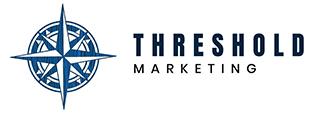Business development jobs are vital in steering companies toward sustainable growth and innovation. These roles require more than just sales skills; they demand the ability to uncover new opportunities, build strategic partnerships, and design forward-thinking plans that ensure long-term success.
Whether guiding startups toward their first significant milestones or helping established firms enter untapped markets, business development professionals play a transformative role in shaping the business landscape.
For those just beginning, these roles offer a chance to dive deep into market dynamics and customer behaviors, laying the groundwork for a fulfilling career. Seasoned professionals, on the other hand, find opportunities to lead impactful strategies and leave a legacy of success.
This blog will chart the career path from entry-level roles to expert positions, explore key skills and strategies, and reveal how leveraging business development services can accelerate your growth and achievements.
Understanding Business Development Roles
Business development is often the backbone of an organization’s growth strategy. At its core, business development involves identifying and cultivating opportunities that lead to organizational growth. Professionals in these roles work at the intersection of sales, marketing, and strategic planning. They analyze market trends, build partnerships, and develop strategies to increase revenue and expand their company’s reach.
The responsibilities of business development professionals are vast and varied. They may include:
- Conducting market research to identify new opportunities.
- Building and maintaining relationships with potential and existing clients.
- Collaborating with internal teams to align goals and strategies.
- Negotiating contracts and closing deals that benefit both parties.
The Importance of Business Development Services
Business development services play a vital role in helping companies navigate challenges and seize opportunities. These services include market research, lead generation, strategic planning, and partnership management. By leveraging these services, organizations can enhance their competitive edge and ensure sustainable growth.
Here are a few examples of these services:
Training Programs
Training programs like the “Advanced Business Development Certification” or “Sales and Negotiation Masterclass” provide structured learning experiences. These workshops and certifications are tailored specifically for business development professionals seeking to upskill and stay ahead. Additionally, mentorship programs and webinars hosted by industry leaders offer real-time insights and networking opportunities.
Consulting and Advisory Services
Consulting services, such as strategy workshops from firms like McKinsey or industry-specific advisors, offer expert guidance on business development tactics. These services include customized solutions to improve negotiation strategies, optimize client portfolios, and align organizational goals with market demands. Peer advisory groups, such as those facilitated by Vistage or YPO, also provide opportunities for professionals to gain diverse perspectives and refine their strategies.
Skill-Specific Bootcamps
Bootcamps focused on advanced negotiation, digital transformation, or market expansion strategies can provide targeted learning. These intensive programs often include hands-on projects and real-world scenarios, enabling professionals to apply what they learn immediately.
Industry Conferences and Networking Events
Attending conferences like the Business Development Summit or industry-specific expos provides a platform to connect with thought leaders, explore emerging trends, and build valuable partnerships. Networking events are essential for staying updated and expanding professional circles in business development.
Entry-Level Roles: Building Your Foundation in Business Development
Every successful career starts with a solid foundation. In business development, entry-level roles provide the perfect starting point for aspiring professionals. Common job titles at this stage include Business Development Representative (BDR) and Sales Development Representative (SDR).
Responsibilities and Expectations:
- Prospecting potential clients.
- Generating leads and qualifying opportunities.
- Scheduling meetings and introducing potential clients to their company’s offerings.
Skills to Prioritize:
- Communication: Clearly articulate your company’s value proposition.
- Time Management: Juggle multiple leads and deadlines effectively.
- Adaptability: Quickly learn and adapt to industry trends and client needs.
Tips for Success:
- Seek Mentorship: Learn from seasoned professionals who can guide you through the nuances of business development.
- Leverage Services: Use business development services such as training programs to refine your skills and gain insights.
Mid-Level Roles: Expanding Your Impact in Business Development
Transitioning to mid-level roles is an exciting milestone. These positions often come with greater responsibilities and opportunities to make a broader impact.
Common Mid-Level Roles:
- Business Development Manager: Oversee a team of representatives and manage key accounts.
- Account Executive: Focus on nurturing client relationships and driving revenue growth.
New Challenges:
- Managing a team and delegating tasks effectively.
- Setting and tracking KPIs to measure success.
- Balancing short-term goals with long-term strategies.
Expert-Level Roles: Refining Your Expertise in Business Development
Expert-level roles mark the transition from executing strategies to refining them with significant autonomy. These positions demand a high level of expertise, responsibility, and a deep understanding of business dynamics, as professionals are entrusted with shaping organizational growth at a larger scale.
Common Expert-Level Roles:
- Senior Business Development Manager: Drive complex strategies, oversee large client portfolios, and manage advanced negotiations.
- Strategic Account Manager: Focus on nurturing relationships with high-value clients and ensuring alignment with their long-term objectives.
Key Responsibilities:
- Develop comprehensive growth strategies that align with organizational objectives.
- Manage cross-departmental collaboration to ensure seamless execution of complex initiatives.
- Lead negotiations for high-stakes deals and partnerships.
- Mentor junior and mid-level team members to build a culture of excellence.
Skills to Hone:
- Advanced data analysis to uncover insights that drive impactful decisions.
- Sophisticated negotiation tactics tailored to high-value partnerships.
- Leadership abilities that inspire and motivate teams toward ambitious goals.
Mastering Core Skills for a Successful Career in Business Development
As you progress in your career, mastering key skills becomes essential. These competencies are the building blocks that enable you to excel and stand out in a competitive field.
Networking and Relationship Building
Building genuine connections with clients, partners, and colleagues is foundational. Networking goes beyond exchanging business cards—creating lasting relationships that benefit all parties. Attending industry events and participating in relevant online communities can also expand your professional network, providing meaningful collaboration and growth opportunities.
Negotiation and Persuasion
Negotiation and persuasion are critical in business development. Mastering these skills means crafting mutually beneficial deals and understanding the needs of others. Effective negotiators rely on active listening, empathy, and confidence to build trust and foster agreements that drive success. These skills can be honed through experience and deliberate practice.
Strategic Thinking and Market Analysis
Strategic thinking and market analysis are indispensable for identifying growth opportunities and staying ahead of competitors. Business development professionals must analyze data, understand market trends, and create actionable plans that align with company goals. Staying informed about industry changes and adapting strategies are key components of strategic thinking.
Adaptability and Resilience
Adaptability and resilience are essential in a fast-changing business landscape. Successful business development professionals embrace challenges and view setbacks as opportunities to refine their approach. They remain open to feedback, continuously seek improvement, and maintain a positive attitude despite adversity.
Leadership and Analytical Skills
Cultivating leadership skills, such as team collaboration, conflict resolution, and emotional intelligence, can set you apart as you advance in your career. An analytical mindset and proficiency with digital tools like CRM platforms, data analytics software, and project management applications are equally important. These tools enhance your ability to manage relationships, track performance, and streamline processes, ensuring success in your business development endeavors.
Proven Business Development Strategies to Drive Results
Effective business development strategies are critical for achieving individual and organizational success. These strategies help professionals navigate complex markets and deliver measurable results.
1. Thorough Market Research
Understanding your target audience, industry trends, and competitor landscape is essential for success. Conducting detailed research allows you to identify unique opportunities and tailor your approach to meet specific market needs. With accurate insights, you can develop strategies that resonate with your audience and drive meaningful results.
2. Leveraging Technology
Technology plays a vital role in optimizing business development processes. CRM tools and data analytics can streamline workflows, enabling professionals to track leads, manage client interactions, and make informed decisions. Automation of routine tasks allows you to focus on high-value activities, such as relationship-building and strategic planning.
3. Cross-Functional Collaboration
Collaboration across departments, particularly with sales and marketing teams, is crucial for creating cohesive strategies. Aligning goals ensures consistent messaging and seamless campaign execution. This enhances efficiency and maximizes the impact of your business development efforts.
4. Building Long-Term Relationships
Fostering trust and loyalty with clients is a cornerstone of successful business development. Regular communication and follow-up show clients you value their partnership beyond the initial deal. Offering ongoing value through tailored solutions and proactive support strengthens these relationships, ensuring repeat business and long-term success.
5. Innovative Thinking and Agility
Staying innovative and agile is key in a rapidly evolving business environment. Being open to new ideas, experimenting with creative solutions, and adapting to market shifts can provide a competitive edge. Embracing change and exploring unconventional approaches often leads to breakthroughs that set you apart from competitors.
Start Your Business Development Career at Threshold Marketing
Are you ready to kickstart or elevate your career in business development? Threshold Marketing offers a unique environment that fosters growth, learning, and achievement. Whether you are just beginning in an entry-level role or looking to expand your expertise, we provide the resources, mentorship, and opportunities you need to succeed.
Threshold Marketing’s commitment to professional development ensures you’ll gain hands-on experience in identifying growth opportunities, building strong partnerships, and executing strategies that deliver accurate results. As part of our team, you’ll be immersed in a supportive culture where innovation and collaboration thrive.
Explore open roles, learn about our dynamic approach to business development jobs, and take the first step toward a rewarding career. Join us and discover how you can be a part of a team that values innovation, growth, and excellence.

